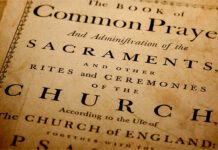Well, political season is heating up in America and everyone has an opinion about what Christians should care about.
Tim Suttle, a blogger for the Huffington Post, recently asked some stalwart Biblical scholars and theologians to weigh in on what they would say is the Bible’s “chief political concern.” While no scholar or theologian gets to give the definitive answer to a question like this, we would be wise to listen to those who have steeped themselves in the Scriptures– it’s language and culture– and in the story of the Church.
I have selected four from Suttle’s list that are my favorite voices to “be in conversation with.” (You can read the full list HERE.) You’ll notice that there is an Old Testament scholar, a New Testament scholar, an ethicist (philosophical theology) and a systematic theologian. (Imagine listening to a great soundtrack in surround sound!)
Walter Brueggemann, Old Testament Scholar, Columbia Theological Seminary:
“I believe that the central political question is the management of public power in order that there should be an economically viable life for all members of the community. Thus justice is front and center and some texts, especially in Deuteronomy, are for the distribution of wealth in order that all may be viable. Obviously such justice is marked by mercy, compassion and generosity. The purpose is to create a genuine neighborhood for all the neighbors.”
N.T. Wright, New Testament Scholar at University of St. Andrews:
“The chief political concern of the Scriptures is for God’s wise and loving ordering of his world to be operative through humans who will share his priorities, especially his concern for the poor, the weak and the vulnerable. This concern was embodied by Jesus in his inauguration of ‘God’s kingdom’ through his public career and especially his self-giving death, which together set the pattern for a radically redefined notion of power.”
Stanley Hauerwas, Theologian and ethicist at Duke Divinity School:
“The chief political concern of the Bible is to worship God truly.”
Miroslav Volf, Systematic Theology, Yale Divinity School:
“The vision of the city of God is the goal. We work for it not by forcing it down from heaven to earth, but by treading in the footsteps of the crucified and resurrected Christ.”
What do you think about what they have said?
What would you add?
What would you say you don’t fully understand about what they have said?
And finally …How does this play out in our political context?











